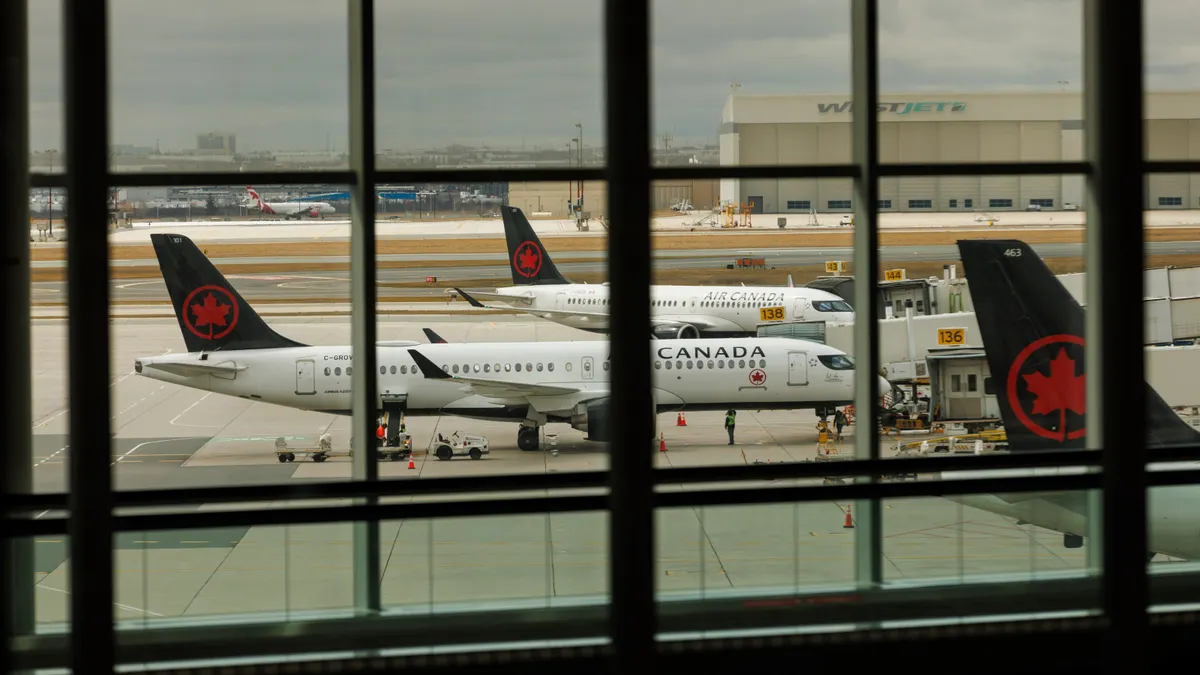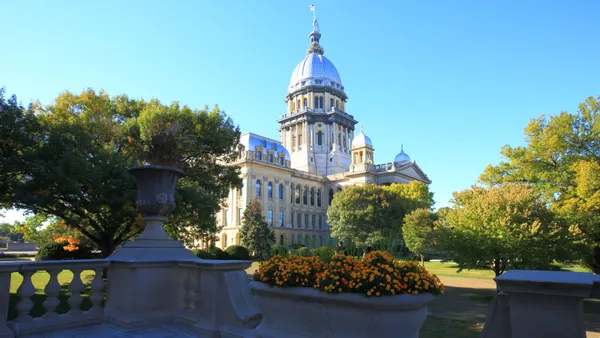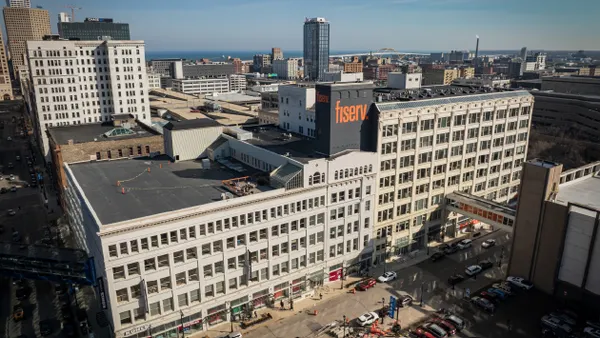Dive Brief:
- Spending for air travel and lodging has slowed amid general economic uncertainty, Visa executives told analysts as they reported quarterly results. Weaker currencies and a shift in the Easter and Ramadan holidays into the April quarter also affected travel volume, Visa said.
- “Obviously the situation is quite fluid, and we’re monitoring the data very closely,” Visa Chief Financial Officer Chris Suh said Tuesday, noting “a meaningful slowdown” in Canadians traveling to the U.S.
- San Francisco-based Visa, the largest card network, also said that in early April consumers chose to “pull forward” some of their planned expenditures in certain categories, including electronics. President Donald Trump’s tariffs on U.S. trading partners are widely expected to boost prices on many goods, unless they’re reversed or mitigated, which likely prompted the pre-impact spending burst Visa and other companies have noted.
Dive Insight:
Visa executives sought to emphasize Tuesday that U.S. consumers are still spending – and showing no signs of a broad retrenchment – despite the lack of macroeconomic clarity into 2025.
“Consumer spending has been resilient and strong, but there’s much uncertainty,” Visa CEO Ryan McInerney said.
JetBlue Airways, citing Mastercard data, on Tuesday also highlighted a reversal in travel demand that it’s seeing. The carrier detected the travel demand slowdown primarily in the Northeast and used data from its bank partner, Barclays, along with consumer spending data from Mastercard, JetBlue President Marty St. George said Tuesday on a quarterly conference call with analysts.
“It is clearly showing that as far as the cut in air travel, it is very much focused on the Northeast, and to a lesser extent, the West Coast,” he said. That data is also informing JetBlue’s capacity cuts, which are “pretty aggressively” focused on the weaker demand periods of Tuesday, Wednesday and Saturday evening, St. George said.
The New York-based airline also recently canceled plans to begin seasonal flights from Boston to Halifax, Nova Scotia, and Long Island to Boston, one of the rare instances he said JetBlue has scrubbed routes before flights had begun.
“Of the trends we’re seeing in U.S.-Canada demand, and more importantly, what we're seeing in the bookings on the airplane, it was not going to be accretive for us anytime soon, so we figured we'd better rip off the Band-Aid now and move forward,” St. George said.
Visa’s fiscal second-quarter net income decreased 2% over the year-ago quarter to $4.6 billion, as net revenue rose 9% to $9.6 billion, according to the report. Visa also said the constant dollar value of payments rose 8% over the previous quarter, with credit volume climbing 6% and debit volume increasing 9%.
“Durability and diversification is on display and yields an attractive investment proposition in Visa despite prevalent macro deterioration concerns in the market,” TD Cowen analysts wrote Tuesday in a client note.
Visa’s results “remind us just how impressive its network model is, replete with pricing power, economic shock absorbers, steady organic revenue growth, free cash flow and profitability,” William Blair analysts Andrew Jeffrey and Christopher Kennedy wrote in a note to clients.
Also Tuesday, Visa said it had recently passed $200 million in cumulative stablecoin settlement volume. Visa is using its “Tokenized Asset Platform” to help banks issue stablecoins, with its first bank partner, BBVA, planning to debut a stablecoin later this year on the Ethereum blockchain, McInerney said.
“We do see real potential, which is why we’ve been investing in the crypto space for many years now,” he said. “We are optimistic about the U.S. government passing more clear and pragmatic regulations” with other countries doing the same for cryptocurrency, he said.













